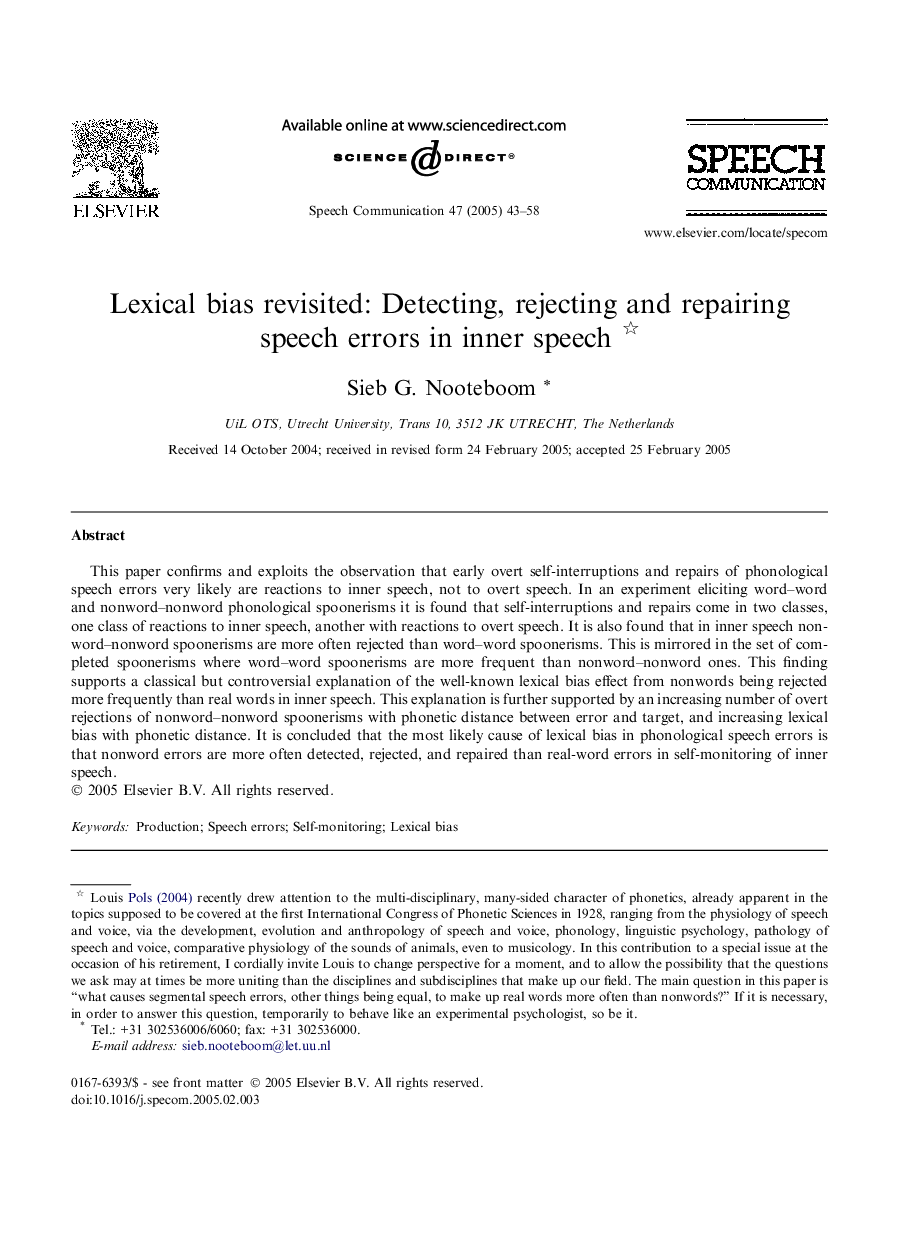| Article ID | Journal | Published Year | Pages | File Type |
|---|---|---|---|---|
| 9673469 | Speech Communication | 2005 | 16 Pages |
Abstract
This paper confirms and exploits the observation that early overt self-interruptions and repairs of phonological speech errors very likely are reactions to inner speech, not to overt speech. In an experiment eliciting word-word and nonword-nonword phonological spoonerisms it is found that self-interruptions and repairs come in two classes, one class of reactions to inner speech, another with reactions to overt speech. It is also found that in inner speech nonword-nonword spoonerisms are more often rejected than word-word spoonerisms. This is mirrored in the set of completed spoonerisms where word-word spoonerisms are more frequent than nonword-nonword ones. This finding supports a classical but controversial explanation of the well-known lexical bias effect from nonwords being rejected more frequently than real words in inner speech. This explanation is further supported by an increasing number of overt rejections of nonword-nonword spoonerisms with phonetic distance between error and target, and increasing lexical bias with phonetic distance. It is concluded that the most likely cause of lexical bias in phonological speech errors is that nonword errors are more often detected, rejected, and repaired than real-word errors in self-monitoring of inner speech.
Related Topics
Physical Sciences and Engineering
Computer Science
Signal Processing
Authors
Sieb G. Nooteboom,
